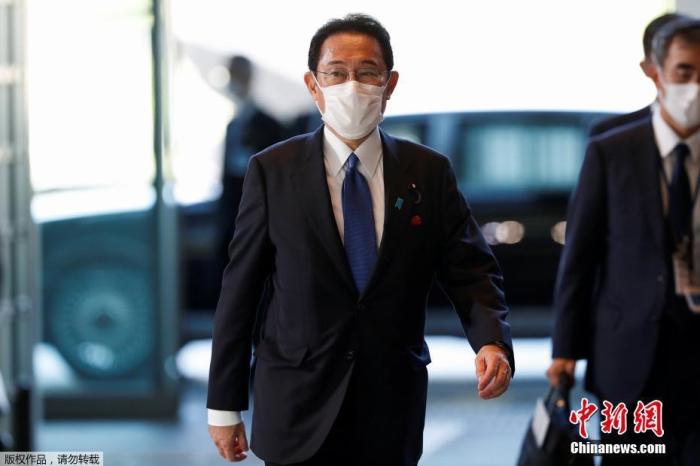China News Service, October 20. According to Kyodo News, Japan’s 49th House of Representatives elections issued an announcement on the 19th. A total of 1051 people competed for small constituencies and proportional representatives for a total of 465 seats.
The vote counting will be held on October 31. The 9 political parties of the ruling and opposition parties will compete fiercely around various policies, and the party leader will take to the streets to deliver a speech.
According to reports, the number of candidates in this election is lower than the previous minimum of 1,131 in the 2005 House of Representatives election under the current system.
Data map: Fumio Kishida, president of the Japanese Liberal Democratic Party.
Kyodo News Agency of Japan said on the 19th that the focus of this election is whether the Liberal Democratic Party and Komeito parties continue to shoulder the government's direction under the new crown epidemic, or whether the opposition parties with the Cadets and the Communist Party of Japan as the core are coming back.
The joint ruling of the Liberal Democratic Party and the Komeito Party has continued since 2012 and is dominated by the Liberal Democratic Party, which has more parliamentary seats.
Japanese Prime Minister and President of the Liberal Democratic Party Fumio Kishida delivered a street address in Sendai City, reiterating that he will push forward economic stimulus policies that will once again increase economic growth, income and wages.
As the core of local development, he also mentioned the importance of agriculture.
Nazuo Yamaguchi, the leader of the Komei Party, said in Hokkaido: “Overcoming the new crown epidemic and regenerating the injured society and economy can only rely on the public government.”
Yukio Edano, the largest opposition party, the Cadet Party, said that under the Liberal Democratic Party and the Komeito party, only large companies benefited from rising stock prices, advocating that "redistribution of income from the national purse is the first step to a better economic situation."
The specific situation of the candidates is that a total of 857 people participated in the election in 289 small constituencies, and the proportional representatives (176 seats) divided into 11 districts across the country had 194 people participating in the election without duplication.
Including 336 people from the Zimin, 240 from Limin, 53 from Komeito, 130 from the Communist Party, 96 from the Reform, 27 from the National, 21 from the Linghe Xinxuan Group, 15 from the Social Democratic Party, and 80 from the non-party.
The winning line set by Fumio Kishida and Nazuo Yamaguchi was that the ruling party won more than half of the seats (233 seats).
Yukio Edano put forward the goal of regime change and strives for the election of all the party's candidates.

